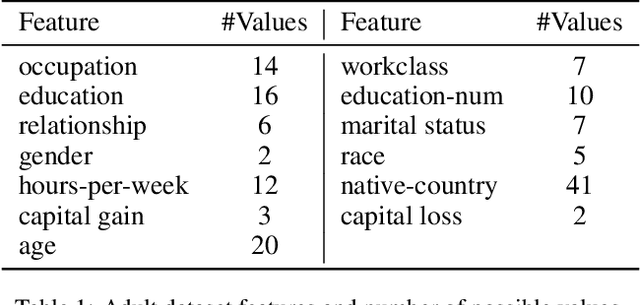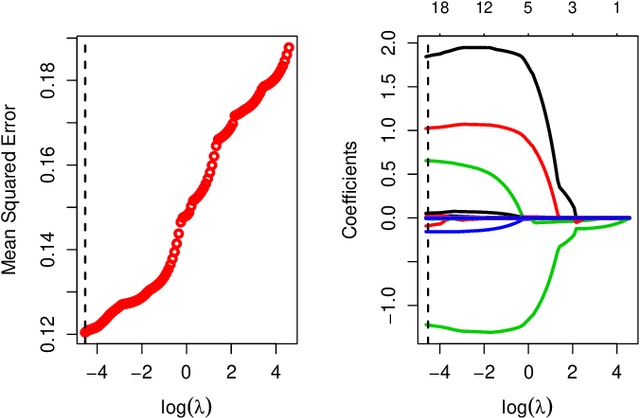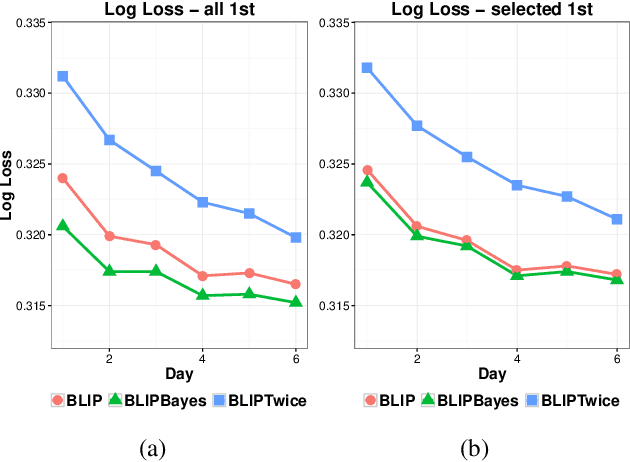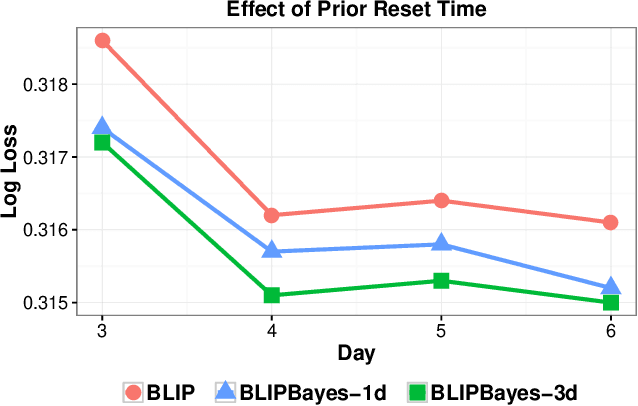Hamed Mamani
Decoupling Learning Rates Using Empirical Bayes Priors
Feb 04, 2020



Abstract:In this work, we propose an Empirical Bayes approach to decouple the learning rates of first order and second order features (or any other feature grouping) in a Generalized Linear Model. Such needs arise in small-batch or low-traffic use-cases. As the first order features are likely to have a more pronounced effect on the outcome, focusing on learning first order weights first is likely to improve performance and convergence time. Our Empirical Bayes method clamps features in each group together and uses the observed data for the deployed model to empirically compute a hierarchical prior in hindsight. We apply our method to a standard classification setting, as well as a contextual bandit setting in an Amazon production system. Both during simulations and live experiments, our method shows marked improvements, especially in cases of small traffic. Our findings are promising, as optimizing over sparse data is often a challenge. Furthermore, our approach can be applied to any problem instance modeled as a Bayesian framework.
 Add to Chrome
Add to Chrome Add to Firefox
Add to Firefox Add to Edge
Add to Edge